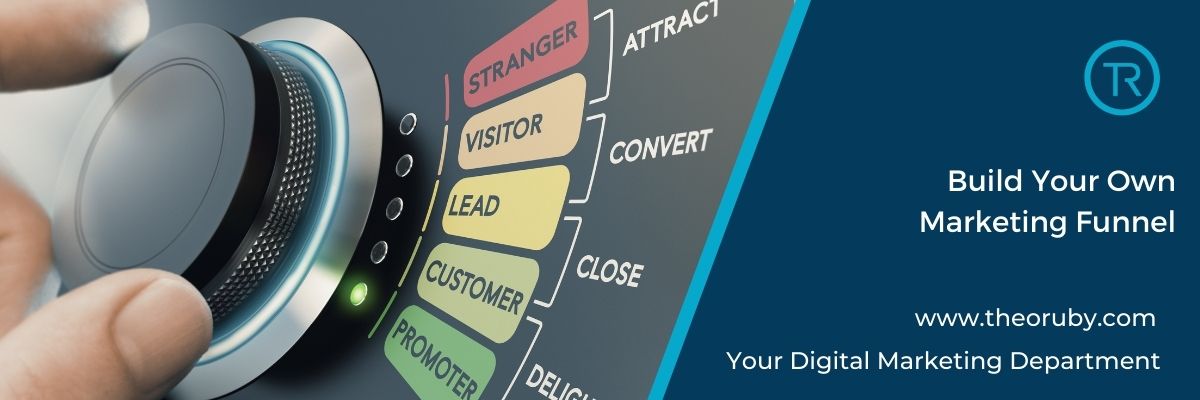
A Marketing Funnel is a theoretical model that shows a customers’ journey towards the purchase of a good or service. The funnel illustrates 5 stages including: Plan, Reach, Act, Convert, and Engage. A Marketing Funnel is important to help you prioritise, organise, and implement your marketing strategy and creates a clear path to making sure you, as a business owner, understands the customers’ buying journey from start to finish and future buying habits.
By understanding the customers journey, you can gain an insight into your target audiences’ behaviour and what has encouraged them to initially make a purchase. In turn, you can adapt your marketing strategies when needed and ensure that your products are suitable for them going into the future, enabling a sustained growth. The mnemonic ‘RACE’ can be used to implement an effective Marketing Funnel.
What does a marketing funnel include?
Before you start building your own marketing funnel there is an initial stage of ‘plan’ which looks at creating an overall strategy and setting business objectives. This is covered in more detail in our workshop but you can book a free planning session here.
Examples of Reach include weekly announcements on Facebook, curated graphics and polls to test engagement.
KPI’s include audience volume, audience quantity, and audience value and cost.
Example or Act include creating a PDF download, building subscribers for a newsletter campaign, or promoting a free trial of a product or service.
Key measures include leads, time on site, and subscribers, likes and share across your social media platforms.
Examples generating sales or subscriptions for a product. Make sure to start measuring from the moment the first sale comes in!
Key measures include sales (both online and offline), revenue, and conversion and order value.
Send out surveys to satisfied customers and generate google reviews and reccomendations.
Key measures include Repeat purchase, satisfaction and loyalty, and advocacy.
What does success look like?
Measures of success are known as KPIs (Key Performance Indicators) and have clear links with the Marketing Funnel as it helps to determine how organic and paid marketing techniques are performing against quantifiable goals. KPIs can vary from business to business, as every business has a different end goal and measures of success.
Notable KPIs throughout the Marketing Funnel may include: return on investment (ROI), cost-per-click (CPC), cost-per-acquisition (CPA), cost-per-lead (CPL).
By setting up a Marketing Funnel it will allow you to understand the customer journey and why they should purchase from your business rather than a competitor, boosting your brand loyalty and helping your business to grow. Whilst implementing a Marketing Funnel, it’s important to set KPIs to stay on track and be able to meet your overall business objectives and goals.
How do I start building my marketing funnel?
To start building your own funnel following the process demonstrated above and join our Build Your own Marketing Funnel” workshop which takes place on the 2nd Friday of every month on Zoom. We will cover all building blocks of the funnel and provide templates for you to follow along at your own pace as well as a 12-week support group for any follow up questions. Book your space here
Simplifying the process of building your business online through bespoke Websites, SEO and Digital Marketing solutions to suit you.
© 2024 Theo Ruby. All rights reserved. Website Designed, hosted & managed by Theo Ruby Marketing